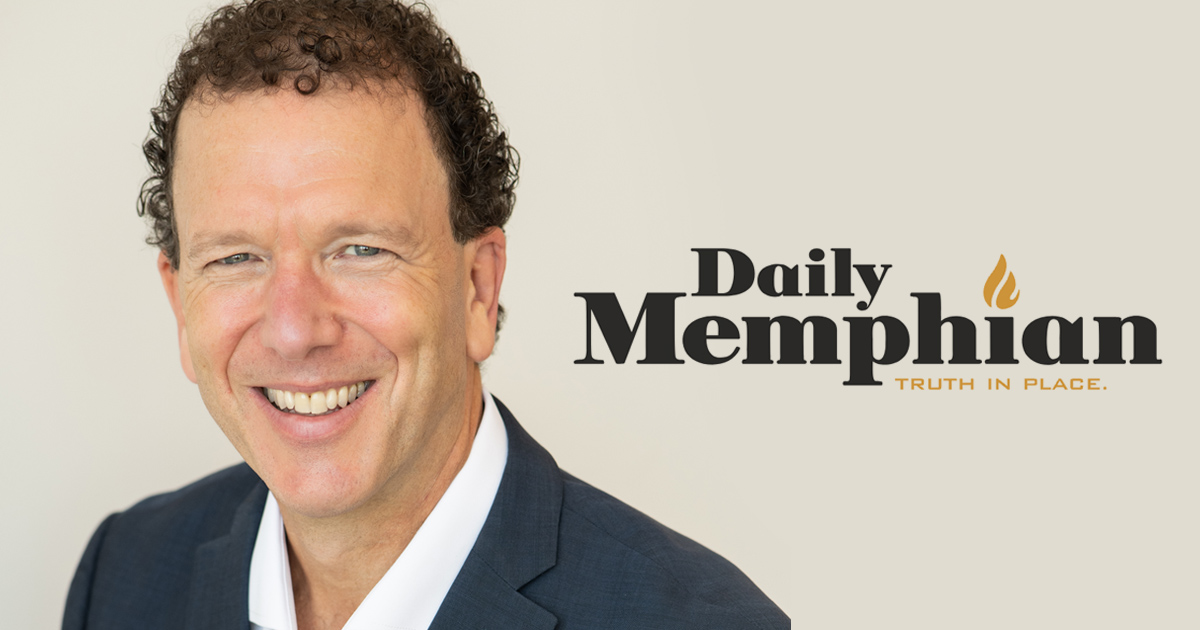Even in the darkest of times, we have reason to give thanks
By: Rabbi Micah Greenstein | November 24, 2024
Enter a search request and press enter. Press Esc or the X to close.

By Micah Greenstein, Special to The Daily Memphian
We usually paint an idyllic picture of Pilgrims and Wampanoags together at festive tables laden with turkey, yams and corn, sharing gratitude for the bounty of a successful harvest.
That might be how we remember the school plays, but the real story is more nuanced.
Pilgrims and Wampanoags did share a meal in the autumn of 1621 — after only half of the 102 Pilgrims who left England arrived alive in North America and made it through a winter they were not prepared for.
But the Pilgrims were sparing about holidays, and it’s doubtful there was any talk of Thanksgiving.
Fourteen of the 18 Pilgrim women had died. When another ship arrived with more people but few supplies, the challenge of feeding more mouths for another winter lay ahead.
Gradually more ships arrived with more people and more supplies, and by 1623, the colonists numbered around 180.
However, they still hadn’t been able to send goods back to England that would repay their 1620 passage, and a spring drought was destroying crops they badly needed for survival.
The colonists — some Pilgrims, some not — prayed for relief. And the rains came. Then Capt. Miles Standish arrived with staples, and another ship was on the way.
All this good news was the reason for the first day, July 30, 1623, that was called a Day of Thanksgiving.
It did not come during a celebration of bounty but during a long season of adversity and scarcity — much greater than the dire predicaments we face today.
Remember, not a single family of those original Pilgrims had been spared by death. Their survivors lived on the fringe of starvation during crop failures and vicious winters. They never knew what it was like to have enough or to be secure.
They stood with little assistance against the forces of nature, religious persecution if they were to return to Europe and brewing conflict with the Native Americans. Others who crossed the Atlantic Ocean joined this fragile community at great risk.
And these were the people who gathered to give thanks to God.
In 1863, 240 years later, Thanksgiving became a national holiday — and 1863 wasn’t a good year either. As a nation, we were in the darkest moments of the Civil War.
We all have learned in grade school how Abraham Lincoln issued the proclamation appointing Thanksgiving as a national observance.
But guess how that famous Thanksgiving proclamation begins? It does not begin with words like, “We give thanks for the blessings we enjoy” or “Stay up until midnight and go shopping for deals.” No, it begins instead, “In the midst of a civil war of unequaled and severe magnitude …”
The history lesson of America’s Thanksgiving festival is even and especially amid trouble, we can find reason to be thankful.
As dark as times may seem or even are, we are far from the devastation of the Civil War, and we are far from having to watch one of every two Americans die as the original Pilgrims did.
Our ancestors never lost their profound sense of gratitude.
Gratitude is basic to my Jewish heritage. The early rabbis suggested the only sacrificial offerings that will still be necessary in the Messianic Age will not be meal offerings or sin offerings.
The only offering that will still be bestowed in the world beyond this one is the korban todah, literally the Thanksgiving offering.
Put differently, “If the only prayer you said was thank you, that would be enough,” which is a quote often attributed to the German theologian Meister Eckhart. Hence the namesake of the Jewish people, derived from the biblical matriarch Leah’s fourth child Judah, from the word Odeh, meaning “thanks.”
That is where the name “Jew” comes from — it means “to be thankful.”
Based on this, the Jewish people took on the name of Judah, because to be a Jew — to be any child of God — means to be thankful.
Every day you wake up, you have a choice. You can either say, “Oy!” or, “Wow!” There is ample reason for either response, but even with all the stresses and challenges some of us face, the sheer fact that we woke up this morning in a free country surrounded by families and friends who love us is enough to say, “Wow!” instead of, “Oy!”
Further, when a person is able to experience life as a “wow” and translate it into a thank you, prayer itself becomes an act of gratitude.
In my faith tradition, the first words a person is to say upon getting up out of bed is a two-word Hebrew prayer: Modeh Ani, “Thankful am I.”
Why not “I am thankful” instead? The Hebrew word sequence is intentional because until I give thanks, I’m less than myself. When I place what I have to be grateful for first, I can be fully me.
The history of Thanksgiving can help us appreciate the miracle of being alive in this time and place, and the timeless gift of gratitude can ground us through any storm.
May this Thanksgiving week take on added meaning for every reader of this column.
This site uses cookies to offer you a better browsing experience. If you continue using our website, we'll assume that you are happy to receive all cookies on this website and you agree to our Privacy Policy.